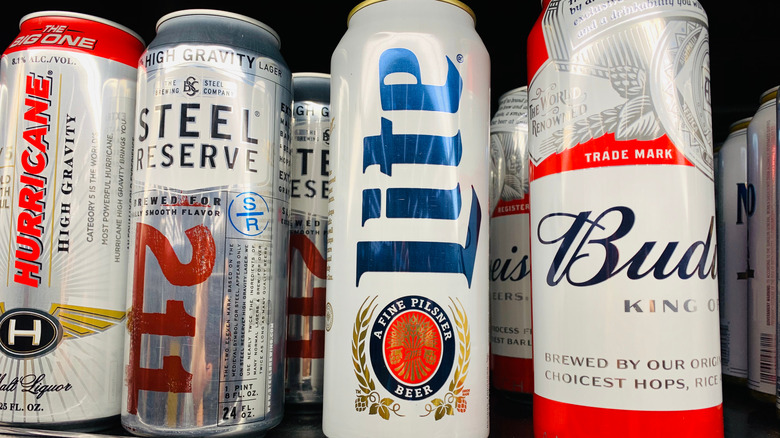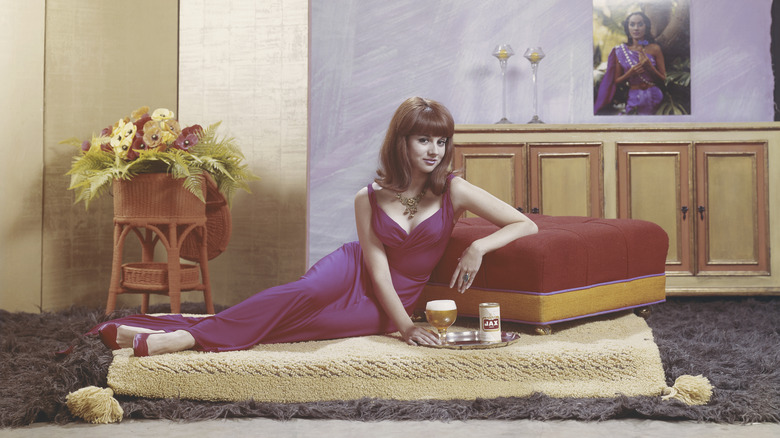The Reason No One Actually Drinks In Beer Commercials
Earlier this year, Tasting Table noted how Michelob Ultra cast a soccer star for its 2024 Super Bowl ad – but the athlete never actually took a sip of the beer. In American beer ads, bikini-clad women wash sports cars while holding a beer, college-aged men kick it on the couch gripping brewskis, and foaming drafts are slid across lacquered bartops to worldly sippers. Folks in beer commercials crack open cans, uncap bottles, toast their buddies, and even bring the glass to their lips as long as the camera cuts before they actually take that sip. What they remarkably never do is drink the beer. All-time American icon John Wayne even starred as a military general in a Coors Light commercial and was denied an on-screen sip. (As if John Wayne would ever drink a light beer, but we digress.) So, what gives?
According to the U.S. Department of the Treasury's Alcohol and Tobacco Tax and Trade Bureau, beer commercials are not subjected to pre-screenings before airing. All that is required in malt beverage advertisements is the beer class (ale stout, lager, etc.) and the name and address of the advertiser and brewer. There's nothing in the official rulebook that says actors can't drink the beer. There is, however, a Code that says it isn't such a good idea. Believe it or not, the reason why folks don't actually drink the beer in commercials is because the brew industry collectively decided not to.
An industry standard
Per the official Beer Institute Code, beer advertising must do four things: Reflect that the company is staffed by otherwise reasonable legal adult consumers; convey that the company is against the inappropriate consumption of its product; avoid suggesting that people consume it unlawfully; and adhere to the present standards for tasteful commercial advertising. Beer commercials also can't blatantly appeal to younger audiences or include Santa Claus (nice).
The only explicit mention in the Code about physically drinking on camera is that "Beer advertising and marketing materials should not portray beer drinking before or during activities which, for safety reasons, require a high degree of alertness or coordination." Although, from a meta-perspective, it could be reasonably argued that shooting a commercial on a professional film set demands a high degree of alertness and coordination.
There are more federally mandated rules requiring what must be included in alcohol ads than what cannot be included. Wine labels are subjected to strict guidelines, and the U.S. government has been regulating liquor since the Bottled in Bond Act of 1897. These self-imposed and voluntary industry regulations on televised beer commercials are perhaps reactionary to the cautionary tale of Big Tobacco's spectacular marketing demise. By keeping it reined in from the jump, the beer industry might be aiming to dodge the strict wave of advertisement regulations that killed the cigarette dominance of yore.

